The case for a prompt election in Bangladesh
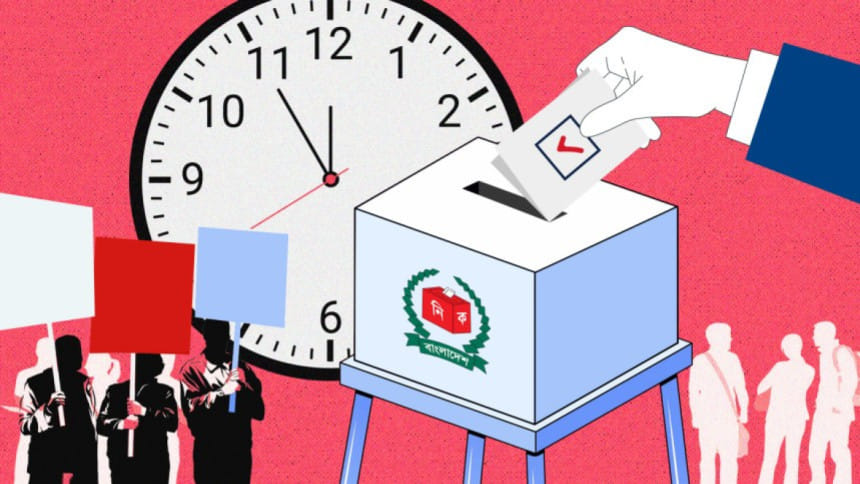
As Bangladesh awaits the date for the 13th parliamentary election, there seems to be a growing consensus among the major political parties and opinion makers that the election date ought to be announced sooner rather than later. Over the last nine and a half months, various reform commissions, advisory committees, and task forces have offered their views on what has to be done to clean up the mess left behind by the 15-plus years of Awami League's rule. There is no doubt that a consensus on the immediate need to restore democracy and the national election exists. However, there is still some disagreement among the various vocal entities, including the interim government, the army, and the most popular political parties, on the timetable for the election.
The existing uncertainty in the country revolves around mainly three tasks that the interim set out to accomplish: reforms, trials of those responsible for the July killings, and the election. It was obvious from the outset that the reforms and the trials might take longer than a few months, or even a year or two, to complete.
On the other hand, the election could be held while the reforms and trials were in progress if all the parties involved agreed. This view was expressed succinctly by Mujahidul Islam Selim, former president of the Communist Party of Bangladesh, who said the reform process should engage people, and the interim government might not have enough time to implement the reform proposals. He suggested that the interim could address some "necessary reforms" and leave the "fundamental issues" to the elected representatives. Other discordant voices have even questioned the legitimacy of reforms and administrative measures undertaken by the unelected government.
The discussions that are now taking place, be it in the print or social media, are: the offer made by the chief adviser to resign; the decision or proposal to establish a humanitarian corridor to Rakhine; the timeline for the July killing trials and the judicial process; priorities of the new budget; and clarity in the decision-making process within the government.Without a national parliament with elected members, speculations are also rife about the motives behind each move undertaken by our neighbouring countries as well as the big powers. The guesses, rumours and conjectures are abundant and widespread. As a result, there is a lot of discussions and uncertainty regarding these issues, leading people to make predictions or assumptions without sufficient evidence.
We heard that the interim government's cabinet, i.e. the advisory council, requested the chief adviser not to resign. He got a vote of confidence from them. Several hypotheses have emerged regarding the background for his move.
However, the question remains: what made him decide to consider resigning? There's still a lot of fog, but we don't know yet what prompted him to state that "the country is in a state of war." Nonetheless, seeing that he handled it the right way is comforting. However, the nation needs to know what is happening in the nation's corridors of power.
The army chief's speech to the brass is now in the mix. He appeared to have anticipated the feeling among the masses when he expressed his dismay at "being kept in the dark" on critical national matters.
The recent actions taken by the government have cast the spotlight on the twin issues of transparency and accountability. Political scientists and management theorists have consistently raised the need for a system that meets these two criteria. Decisions made behind closed doors must be transparent, and those involved must be accountable. Accountability means that those making decisions are answerable for the choices they make and the subsequent actions taken.
Now, imagine a hypothetical scenario. If we had a democratically elected parliament that represented divergent political views, the questions and the conjectures mentioned above could have had a fair hearing. MPs would have raised a point of order or filed a similar motion and drawn the concerned cabinet member's or the prime minister's attention to hash it out in parliament. Other members would have debated it, and things would have been laid to rest rather than allowed to simmer for weeks.
To sum it up, there is an urgent need for an announcement on a deadline for the election. An elected government may not lead us to El Dorado, but it is the better option in the current state of affairs. Democracy is messy, but to paraphrase Winston Churchill, it is not the worst form of government if you consider the alternatives. Elections will not only bring about accountability and transparency but also restore people's representation and the government's legitimacy.
Dr Abdullah Shibli is an economist and employed at a nonprofit financial intermediary in the US. He previously worked for the World Bank and Harvard University.
Views expressed in this article are the author's own.
Follow The Daily Star Opinion on Facebook for the latest opinions, commentaries and analyses by experts and professionals. To contribute your article or letter to The Daily Star Opinion, see our guidelines for submission.

 For all latest news, follow The Daily Star's Google News channel.
For all latest news, follow The Daily Star's Google News channel. 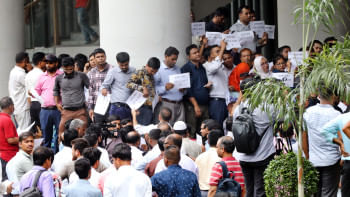
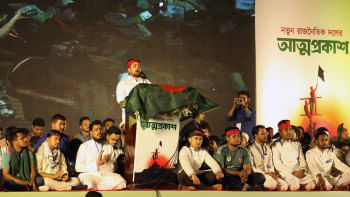


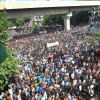




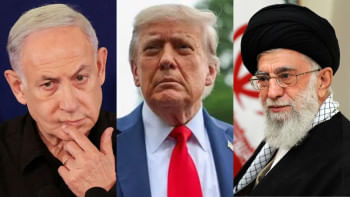
Comments